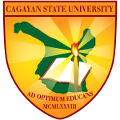Search results: 2196
This course deals with the principles and teaching/learning strategies in medical laboratory science/medical technology including adult learning and the roles of a medical laboratory scientist/medical technologist as a teacher in different settings. It also includes strategies that enhance critical thinking, clinical laboratory teaching, and assessing and evaluating learning.
A course which deals with the study of the morphology and physiology of bacteria and their role in infection and immunity. Emphasis is made on their isolation, identification and susceptibility testing as an aid in laboratory diagnosis.
The course covers the morphology and physiology of bacteria and their role in infection and immunity. Emphasis is made on their isolation, identification, and susceptibility as an aid in laboratory diagnosis.

The course covers the morphology and
physiology of bacteria and their role in infection and immunity. Emphasis is
made on their isolation, identification, and susceptibility as an aid in
laboratory diagnosis.

The course deals with the study of fundamentals of blood as a tissue. It includes blood cell disorders, special hematology evaluation, quality control and quality assurance.
The course deals with the study of fundamentals of blood as a tissue. It includes blood cell disorders, special hematology evaluation, quality control and quality assurance.
The course deals with the study of fundamentals of blood as a tissue. It includes blood cell disorders, special hematology evaluation, quality control and quality assurance.
This course deals with the study of urine and body fluid analysis. Includes the anatomy and physiology of the kidney, physical, chemical and microscopic examination of urine, cerebrospinal fluid, and other body fluids as well as quality control, quality assurance and safety.
This course deals with the study of urine and body fluid analysis. Includes the anatomy and physiology of the kidney, physical, chemical and microscopic examination of urine, cerebrospinal fluid, and other body fluids as well as quality control, quality assurance and safety.
This course deals with the study of urine and body fluid analysis. Includes the anatomy and physiology of the kidney, physical, chemical and microscopic examination of urine, cerebrospinal fluid, and other body fluids as well as quality control, quality assurance and safety.
This course deals with the study of urine and body fluid analysis. Includes the anatomy and physiology of the kidney, physical, chemical and microscopic examination of urine, cerebrospinal fluid, and other body fluids as well as quality control, quality assurance and safety.
This course deals with the study of urine and body fluid analysis. Includes the anatomy and physiology of the kidney, physical, chemical and microscopic examination of urine, cerebrospinal fluid, and other body fluids as well as quality control, quality assurance and safety.
